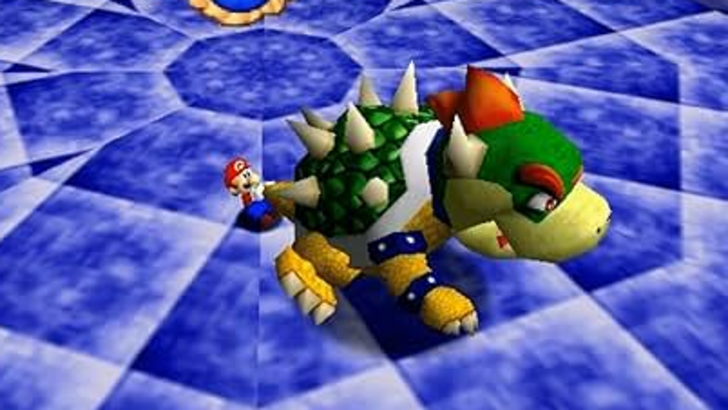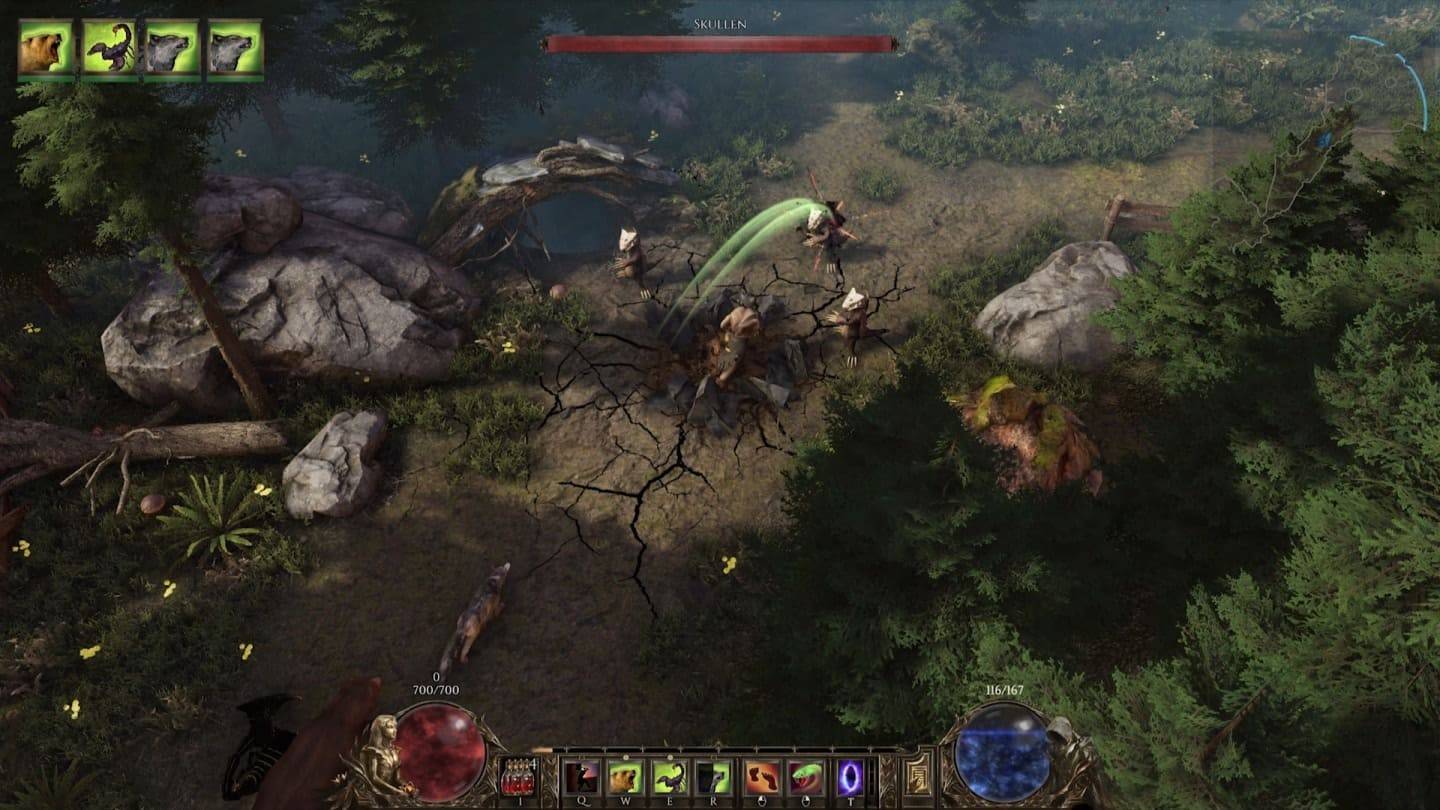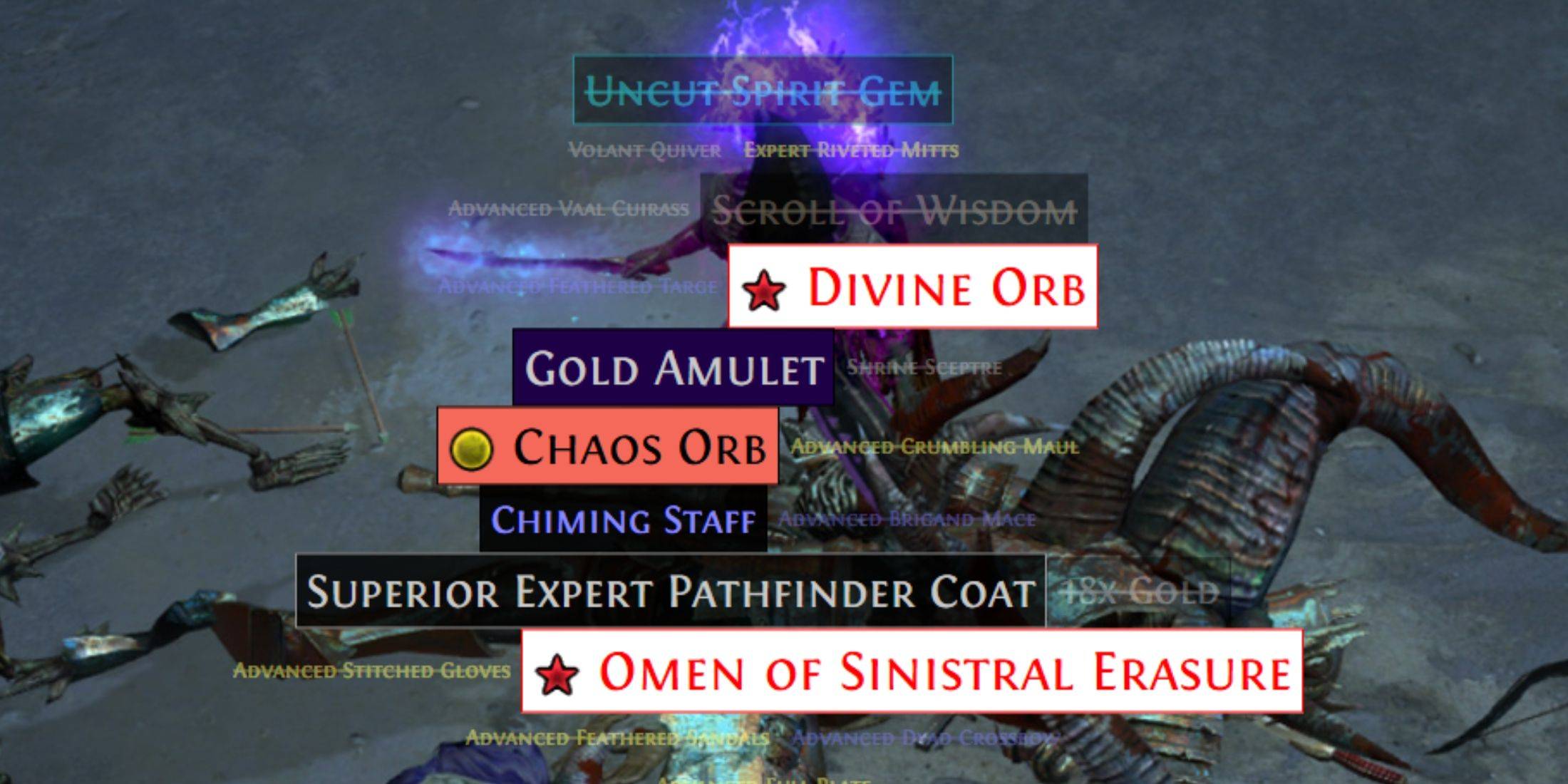In Fortnite's Ranked Mode, unlike the classic Battle Royale, match results directly impact a player's position within the ranking system. As you ascend through the tiers, the competition intensifies, and the rewards become more prestigious. This system has taken the place of the former Fortnite Arena mode, offering a clearer and more balanced progression path. Let's delve into how the ranking system functions and what contributes to rank advancement.
Table of Content ---
- How the Ranking System Works in Fortnite
- How to Raise Your Rank
- Placement in the Match
- Eliminations
- Team Play
- What Rewards Can You Get
- Useful Tips for Ranking Up
How the Ranking System Works in Fortnite
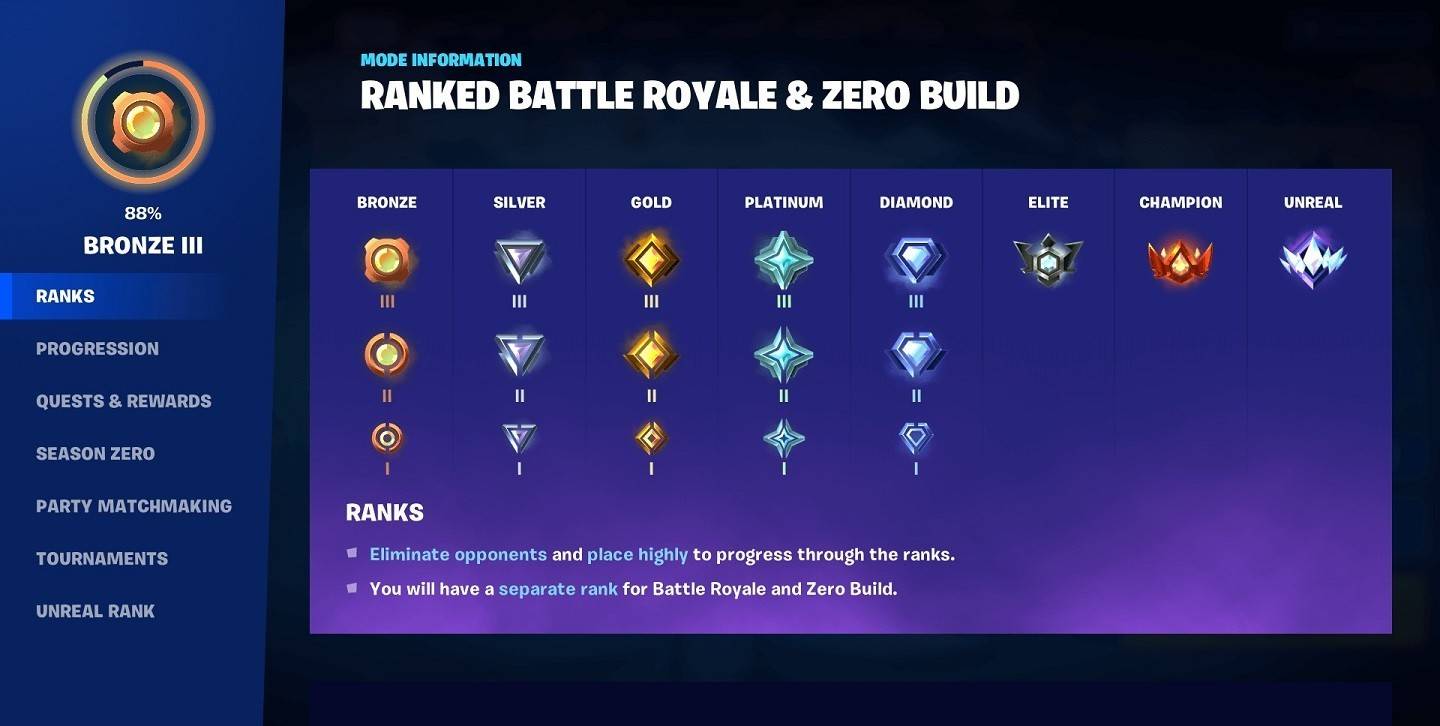 Image: fortnite.com
Image: fortnite.com
The previous mode relied on Fortnite arena points, awarded for match participation. This allowed players to advance simply by playing numerous games, not necessarily by showcasing skill, which led to unbalanced matchups. Experienced players could find themselves up against those who had merely accumulated points through passive play.
In the current system, players begin with a calibration period, where their initial performance in matches sets their starting rank. Success in these games, measured by battlefield achievements, eliminations, overall effectiveness, and final placement, determines the final rank.
Fortnite's ranking system comprises eight ranks:
- Bronze—The entry level for newcomers to the competitive scene.
- Silver—For players with some experience, yet inconsistent results.
- Gold—For those confident in their mechanics and tactics.
- Platinum—A higher tier where shooting skills, positioning, and tactical thinking are key.
- Diamond—Where complex strategies are common, making matches more challenging.
- Elite—Reserved for strong, consistent players.
- Champion—For top-tier players with exceptional skill and the ability to outplay tough opponents.
- Unreal—The pinnacle, reserved for the elite of the elite.
The first five ranks are split into three sub-divisions, such as Bronze I, II, and III. Matchmaking is based on rank to ensure fair competition. At higher ranks (starting from Elite), matchmaking may include opponents from adjacent tiers to minimize wait times.
Players can ascend or descend within the ranking system. Frequent losses can result in the loss of rating points, potentially dropping you back to a lower division. However, once you reach the Unreal rank, it's permanent, with an internal ranking system to distinguish among top competitors.
At the start of a new season, players undergo calibration again. While their previous rank isn't reset entirely, it may shift based on last season's performance. High-ranked players don't start from scratch but might be placed slightly lower to reprove their skill.
How to Raise Your Rank
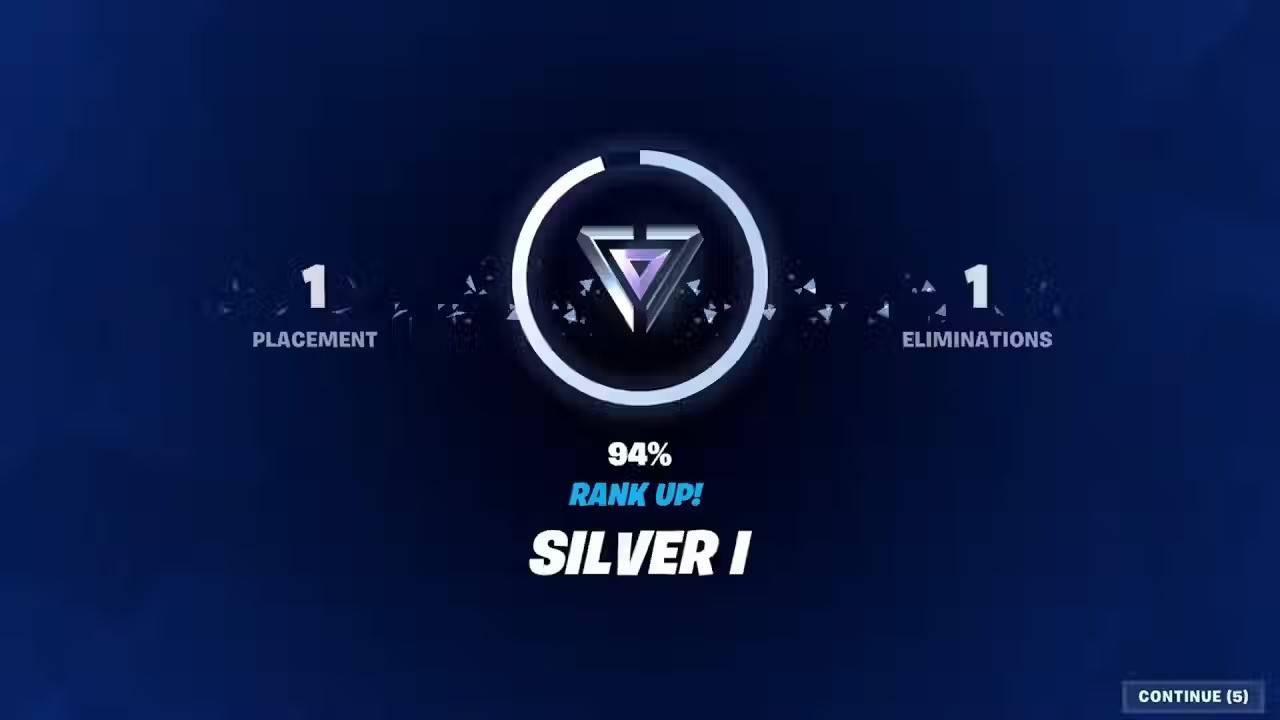 Image: dignitas.gg
Image: dignitas.gg
Advancement in the ranking system hinges on match success. Superior performance accelerates your climb, but as you rise, so does the competition, and the rating rules adjust accordingly.
Placement in the Match
Your final standing in a match is crucial for moving up the ranks. Higher placements yield more rating points:
- Winning a match provides the highest rating boost, reflecting the pinnacle of success.
- A top 10 finish still grants a substantial rating bonus. Consistent high placements contribute to steady progress.
- Early eliminations do not earn points and, at higher ranks, can even reduce your rating.
- To consistently improve your rank, focus on both eliminating enemies and surviving as long as possible.
Eliminations
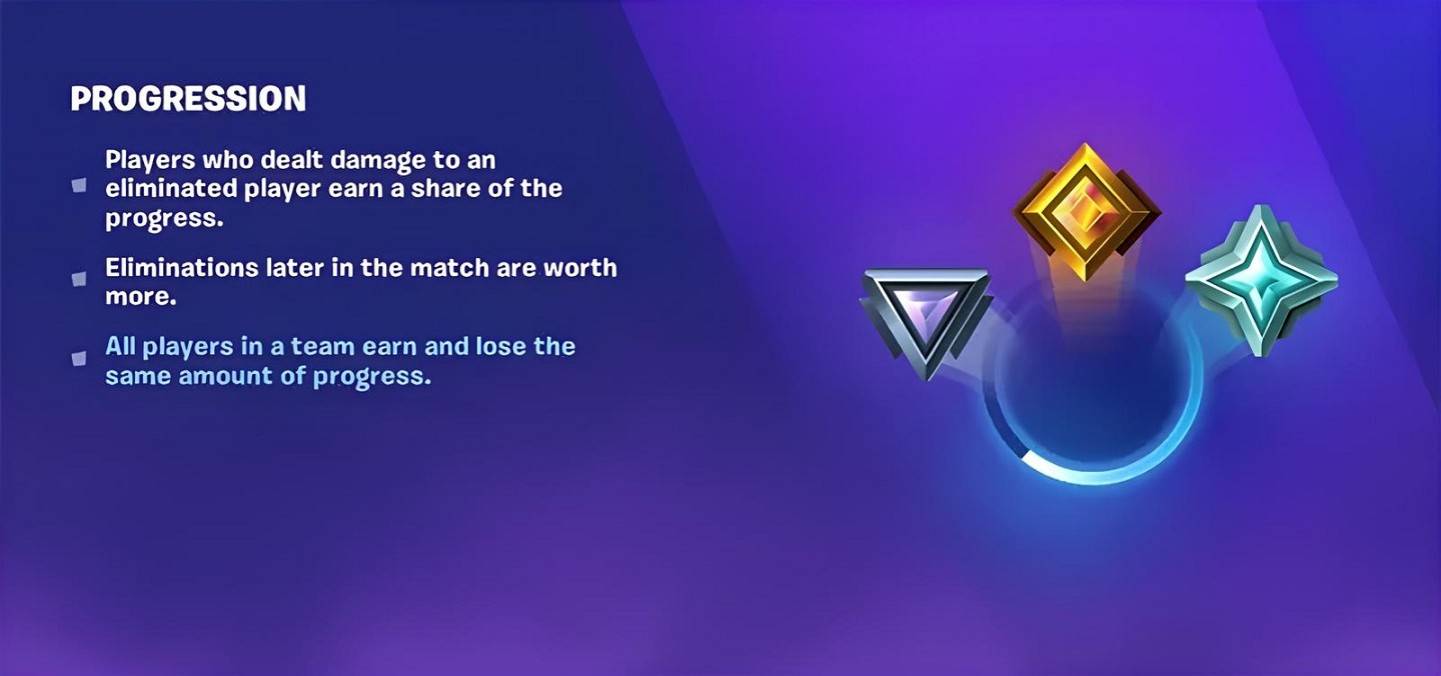 Image: obsbot.com
Image: obsbot.com
Eliminating opponents is a key factor in increasing your rank:
- Each elimination boosts your rating, with the impact varying by your current rank. Lower ranks offer fewer points per kill, while higher ranks offer more.
- Late-game eliminations are more valuable than those in the early game. In the final stages, only the strongest remain, and defeating them yields more rating points.
- Both personal and team eliminations contribute to your rating. If you significantly damage an opponent before a teammate finishes them off, you also gain rating points.
- An aggressive playstyle can expedite ranking, but it also risks an early exit. Balancing offense with strategy is essential.
Team Play
In Duos and Squads, individual achievements are important, but so is your contribution to the team's success. Healing allies, reviving fallen teammates, and sharing useful items keep the team in the fight and increase your chances of winning.
Coordinated teamwork offers a collective advantage and speeds up rank progression. Even without many kills, you can earn a stable rating by effectively supporting your teammates.
What Rewards Can You Get
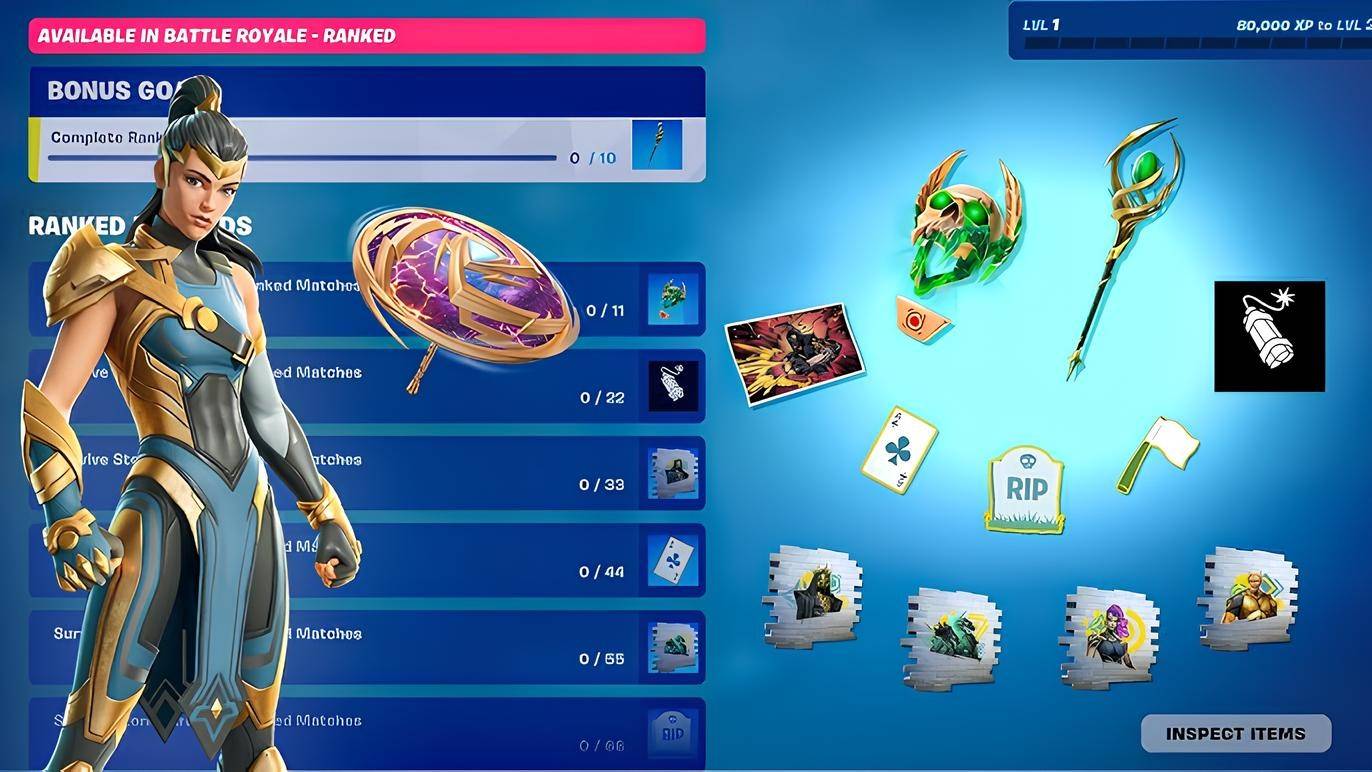 Image: youtube.com
Image: youtube.com
Fortnite's Ranked Mode not only challenges players' skills but also offers unique rewards for progression and completing special challenges.
Participants in ranked matches can earn exclusive cosmetic items unavailable in the regular in-game shop:
- Rank emblems and badges displayed in the lobby to showcase your current level.
- Emotes and sprays to highlight your achievements during matches.
- Exclusive skins awarded for completing special challenges in Ranked Mode, available only for the season's duration.
Players reaching the Unreal rank gain a unique status and appear on the global leaderboards. These charts display only the best players, with positions updating in real time. Additionally, a high rank can grant access to Fortnite esports events, provided the player meets the tournament requirements.
Useful Tips for Ranking Up
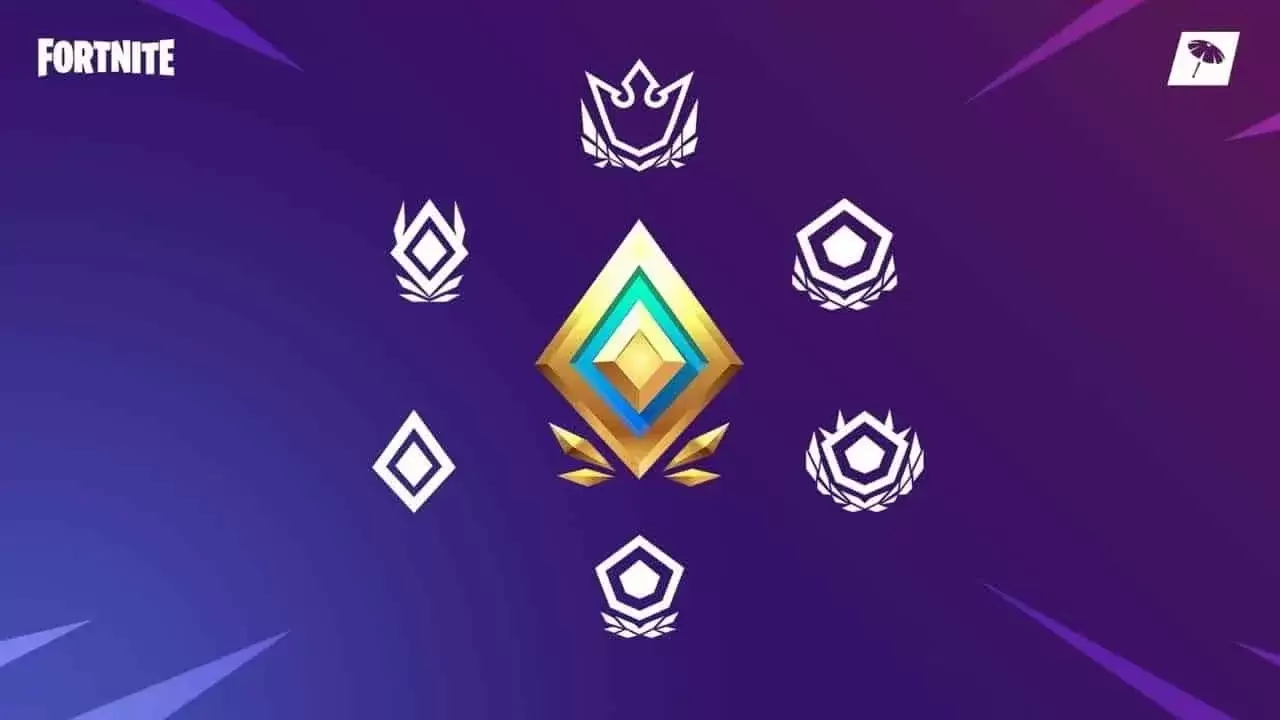 Image: fiverr.com
Image: fiverr.com
To advance in Fortnite's Ranked Mode, you need both strong gameplay skills and a strategic approach:
- Study the map and key areas. Familiarity with the terrain helps you quickly find resources, weapons, and advantageous positions.
- Play to your strengths. If you're a good marksman, adopt an aggressive playstyle. If you're more tactical, opt for a patient approach, using cover and avoiding early confrontations.
- Choose your landing spot based on your playstyle. Aggressive players should land in busy locations, while cautious players should opt for quieter zones with sufficient loot.
- Control the high ground. A higher position offers tactical advantages, making it easier to shoot enemies and harder for them to hit you.
- Stay aware of your surroundings. Stay within the safe zone, but plan escape routes in advance to avoid being caught between enemies.
- Play with trusted teammates. In ranked matches, coordinated team actions often determine the outcome. Good communication and cooperation significantly boost your chances of victory.
- Develop quick reactions and speed. The ability to make instant decisions and build cover on the fly helps maintain control.
- Learn from top players. Watch professional streams and analyze their tactics to find useful tips you can apply in your own matches.
- Keep an eye on updates. Epic Games regularly changes weapon balance, map elements, and mechanics. Read patch notes and adjust your strategy to maintain an advantage.
Consistent practice, learning from mistakes, and adapting to various situations will gradually help you move up. The key is not to fear tough matches—keep improving and enjoy the process. Over time, you'll see steady progress and climb the ranking system.

 Latest Downloads
Latest Downloads
 Downlaod
Downlaod




 Top News
Top News